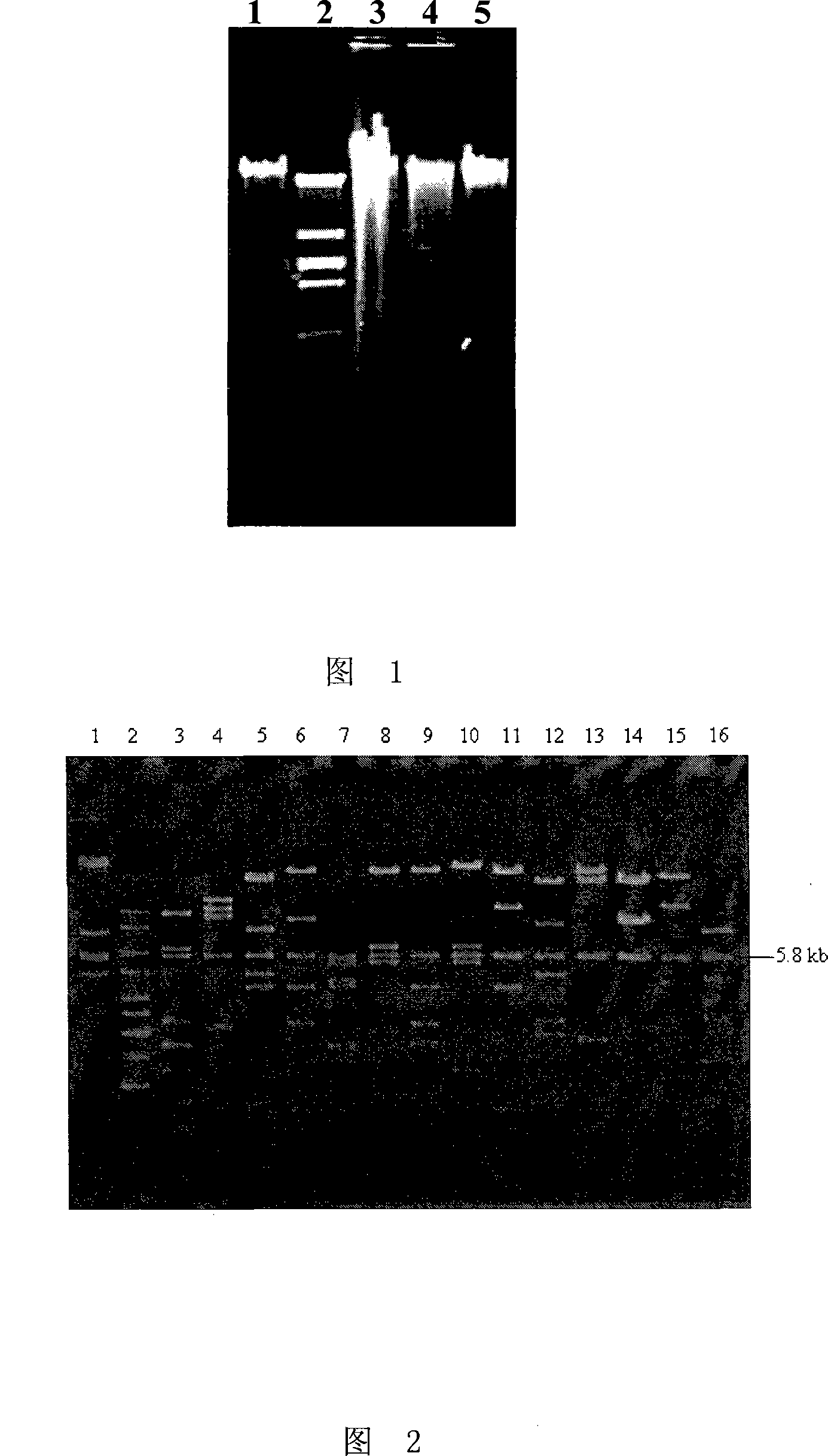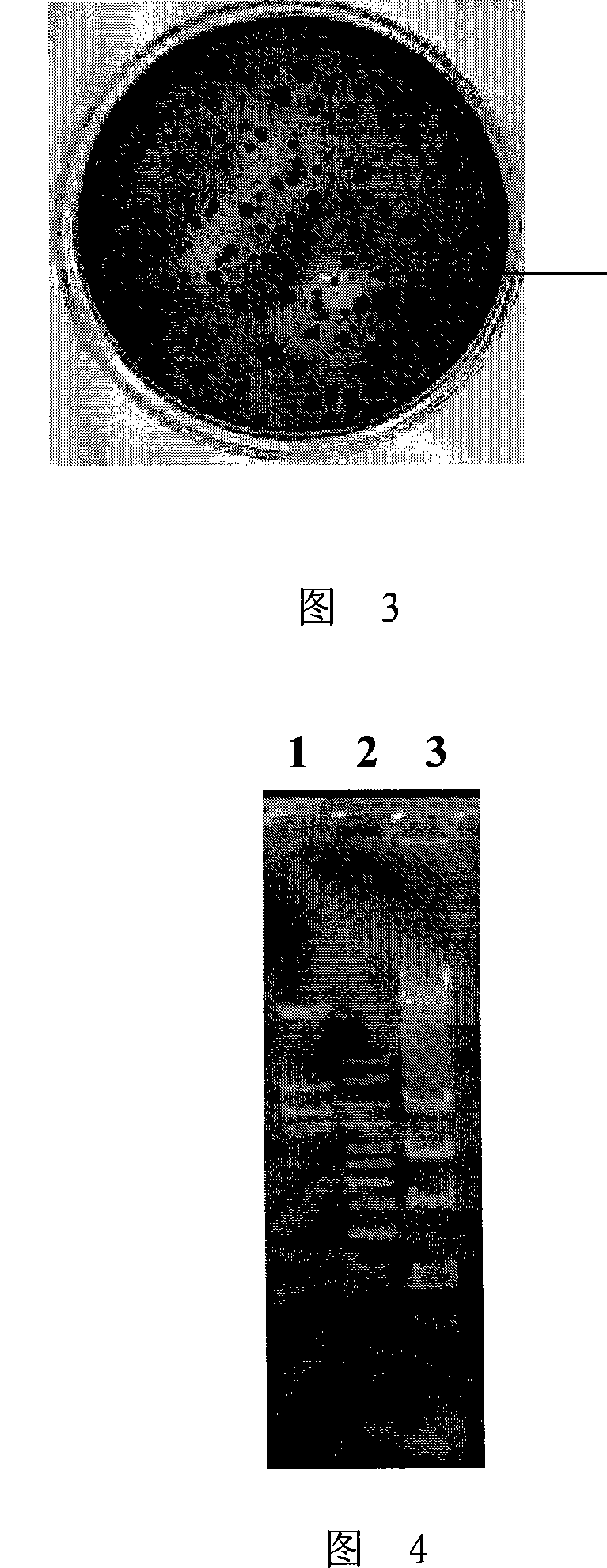Endoglucanase as well as encoding gene and use thereof
An endoglucanase and encoding gene technology, which can be used in applications, genetic engineering, plant genetic improvement, etc., and can solve problems such as high cost, high price, and inability to truly realize industrialization.
- Summary
- Abstract
- Description
- Claims
- Application Information
AI Technical Summary
Problems solved by technology
Method used
Image
Examples
Embodiment 1
[0042] Example 1. Obtainment of endoglucanase Umcel5D and its encoding gene
[0043] 1. Construction of buffalo rumen uncultured microbial metagenomic library
[0044] 1. Extraction of the metagenome of uncultured microorganisms from the rumen of buffalo
[0045] Take 50g of buffalo rumen content (the source of the sample is the rumen of the buffalo just slaughtered by the Nanning Meat Union Plant, and the collected sample is immediately stored in liquid nitrogen), suspended in 200ml of 0.18M potassium phosphate buffer (pH6.5), Shake gently and place for 10 minutes to allow the cellulose particles in the rumen to automatically precipitate, discard the supernatant, and add 200 ml of 0.18M potassium phosphate buffer (pH 6.5) to wash the pellet twice. Metagenomic DNA of microorganisms adsorbed to cellulose particles was extracted from the pellet by direct extraction. Add 100ml of extraction buffer (100mM sodium phosphate pH8.0; 100mM Tirs-HCl pH8.0; 100mM EDTA pH8.0; 1.5M NaCl;...
Embodiment 2
[0064] Example 2. Expression of umcel5D in Escherichia coli
[0065] 1. Construction of a recombinant vector expressing umcel5D (pET-umcel5D)
[0066] After the gene with the encoding signal peptide is expressed in vivo, the expression product is likely to be secreted outside the cell. In order to avoid the secretion of the expression product to the outside of the cell, only the 295th to 1878th bases from the 5' end of the artificially synthesized sequence 1 (that is, the DNA sequence in the umcel5D gene except for the coding signal peptide functional domain and the stop codon), 1585bp , the molecular weight of the protein encoded by the synthesized fragment is estimated to be 59.1202KDa, and the isoelectric point pI is 5.92.
[0067] The entire sequence of the umcel5D gene except the signal peptide and the stop codon (that is, the 295-1878 nucleotide sequence from the 5' end of sequence 1) was artificially synthesized, and the two ends of the synthetic umcel5D gene had EcoRI...
PUM
| Property | Measurement | Unit |
|---|---|---|
| molecular weight | aaaaa | aaaaa |
| molecular weight | aaaaa | aaaaa |
Abstract
Description
Claims
Application Information
 Login to View More
Login to View More - R&D
- Intellectual Property
- Life Sciences
- Materials
- Tech Scout
- Unparalleled Data Quality
- Higher Quality Content
- 60% Fewer Hallucinations
Browse by: Latest US Patents, China's latest patents, Technical Efficacy Thesaurus, Application Domain, Technology Topic, Popular Technical Reports.
© 2025 PatSnap. All rights reserved.Legal|Privacy policy|Modern Slavery Act Transparency Statement|Sitemap|About US| Contact US: help@patsnap.com



